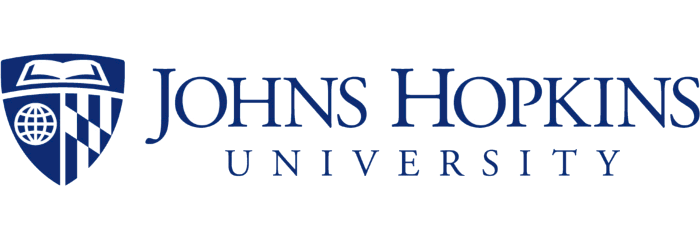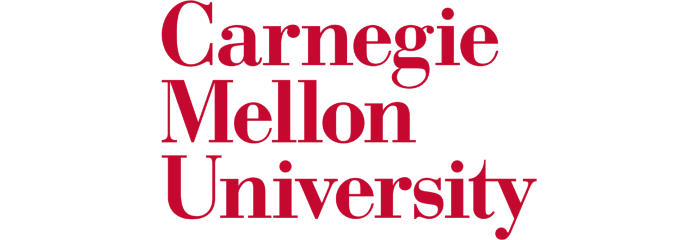
25 Best Master's in Computer & Information Science 2020
This list highlights the best 25 colleges with a Master's in Computer and Information Science, in order of highest median salary one year after graduating from this program. The top ranked school is University of Washington - Seattle, with a median salary of $119,900. The school with the lowest median debt for this degree is Towson University, with a debt of $20,500. Students who graduated with a Master's Degree in Computer and Information Science from one of the schools below had median starting salaries between $62,100 and $119,900.
Tuition, median salaries, and median debt were reported by the U.S. Department of Education in November 2019. View our methodology for more details about these rankings or read more about the top-ranked schools.
| School | Annual Tuition | Median Debt | Median Salary |
|---|---|---|---|
| University of Washington - Seattle | $31,530 | $32,584 | $119,900 |
| Johns Hopkins University | $62,962 | $31,537 | $115,900 |
| New York University | $39,592 | $55,449 | $111,900 |
| Georgia Institute of Technology | $30,646 | $27,821 | $109,900 |
| Carnegie Mellon University | $48,557 | $60,316 | $108,000 |
| University of Pennsylvania | $44,162 | $41,000 | $103,600 |
| Columbia University in the City of New York | $54,627 | $69,072 | $97,700 |
| George Mason University | $38,986 | $30,242 | $90,500 |
| The University of Texas at Dallas | $29,252 | Not Reported | $88,100 |
| University of St. Thomas | $26,932 | $48,800 | $82,400 |
| Georgia State University | $23,982 | $38,750 | $81,600 |
| New Jersey Institute of Technology | $35,718 | $35,000 | $76,500 |
| University of Denver | $55,563 | $53,902 | $72,900 |
| University of North Carolina at Charlotte | $21,884 | Not Reported | $71,500 |
| Illinois Institute of Technology | $35,721 | Not Reported | $70,800 |
| University of Arizona | $12,707 | $32,475 | $70,100 |
| Nova Southeastern University | $23,911 | $61,500 | $63,800 |
| ECPI University Online | $13,625 | $25,528 | $62,100 |
| Southern New Hampshire University Online | $11,286 | $39,967 | $60,000 |
| Colorado Technical University | $14,597 | $39,755 | $59,700 |
| Purdue Global | $11,493 | $51,205 | $59,700 |
2020 Best Colleges Highlights

Through its Allen School of Computer Science & Engineering, the University of Washington – Seattle offers a Professional Master's Degree in Computer Science & Engineering. It is designed to be compatible with full-time professional employment, with classes meeting one weekday evening per week. Professionals can earn the degree in two-and-a-half years by taking one course and one colloquium each quarter over eight quarters, for a total of eight courses and eight colloquium credits.
The program offers practical insights and training for working professionals and allows students to network with other top computing professionals in their field while learning the latest technical skills and developments in technology.

Johns Hopkins University offers an MSE in Computer Science (Master of Science in Engineering in Computer Science). This program is available through the Department of Computer Science in the Whiting School of Engineering, located in Baltimore, Maryland. It can be finished in three semesters of full-time study. Students will take at least one course in each of five areas: Applications, Reasoning, Software, Systems, and Theory, three elective courses in CS or a related field like Cognitive Science, Engineering, or Math. To graduate, students must either take two additional Computer Science elective courses, complete a research project with a faculty advisor, or submit an original master's thesis.
The department is research-focused and provides students with opportunities for individualized training and hands-on experience. Students entering the program should have a BS in Computer Science or should have satisfied equivalent prerequisite courses.

New York University offers a Master of Science in Computer Science through the Computer Science department of the Courant Grad School of Arts and Sciences. The program's philosophy focuses both on breadth and depth of knowledge by starting with a set of foundational of courses, then allowing students to deepen their knowledge in their specific fields of interest. Students can choose from specialties like cryptography, graphics, computer networking, programming languages, and others.
Students usually take 12 courses before graduation, including a capstone course and two classes in an application area like Intelligent Systems, Graphics, or Computation for Science and Society. Students must also maintain a 3.0 GPA and pass the three foundational courses Fundamental Algorithms, Programming Languages, and Operating Systems. The program takes approximately 2 years for full-time students to complete.
NYU’s 60,000 students make it the largest private university in the country. Founded in 1831, the main campus is in New York City’s famous Greenwich Village. NYU also has campuses in Shanghai, China, and Abu Dhabi.

Georgia Institute of Technology offers a Master of Science in Computer Science (MSCS) through its School of Computing. This master's degree requires 30 credits and can be completed in a year. The program is offered on Georgia Tech's Atlanta campus and online.
The program focuses on programming, computing and information theory, and preparing students for careers in a rapidly changing industry. Students learn both theory and tools that will help them solve problems in business and computing. All students must complete at least one specialization, including Computer Graphics, Machine Learning, Human-Computer Interaction, Visual Analytics, and others. Courses in the program include Geometric Modeling, Reliability and Security in Network Architecture, and Visualization Methods for Science and Engineering.

Carnegie Mellon University's Master of Computer Science is offered through the university’s Computer Science department and lets students deepen their understanding and training in CS. Students usually complete the program in three semesters but may take an additional semester to complete it if coming from a non-computer-science undergraduate background. Students in the program aren't required to have a Bachelor's Degree in Computer Science, but having a technical background is encouraged.
The program does not have a set of required courses. Instead, students create their own course plan with the help of an advisor. To graduate, students need to meet several criteria, including maintaining a 3.0 GPA, passing 96 units of master's courses, 12 elective units, one course in Systems, one course in Theoretical Foundations, and one course in Artificial Intelligence.